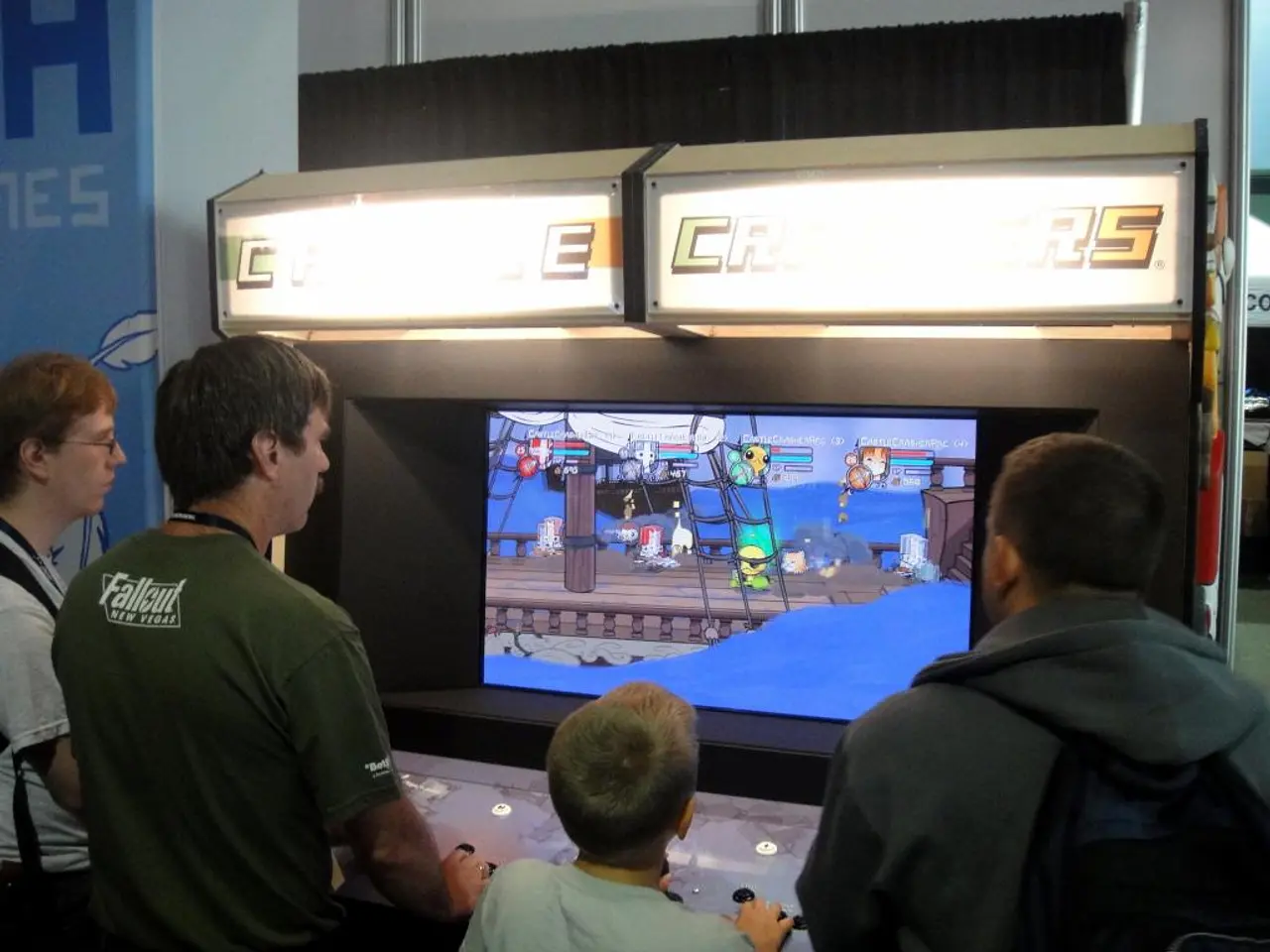Astounded by the prevalence of artificial intelligence in modern video game design
In the ever-evolving world of video games, artificial intelligence (AI) is making a significant impact. As of mid-2025, about 20% of new releases on Steam, the popular gaming platform, openly disclose the use of generative AI in their development processes [1]. This represents a 700% increase in AI-disclosed games over the past year, with nearly 8,000 games now incorporating AI [1].
The increased use of AI is transforming various aspects of game design. AI is being employed for content generation, including art, dialogue, and music, as well as for procedural world-building, NPC behavior, gameplay adaptation, and accelerated testing [1][4][5]. One game that proudly boasts of its AI-generated origins is GenAI Roguelite, where every location, NPC, and game mechanic was entirely generated by AI [1]. GenAI Roguelite has an impressive 82% positive score from 432 player reviews, demonstrating the potential of AI-driven games.
Gamers' reactions to the increased use of AI have been mixed but generally trending positive. While some express disappointment at indie developers using AI instead of human artists, others argue that boycotting all AI-made games may leave them with only retro game consoles. Players are beginning to experience benefits from AI-driven NPCs and procedurally generated content that personalize and diversify gameplay [4]. However, concerns remain around creativity, authenticity, and the potential over-reliance on AI.
Steam has taken steps to address these concerns by adding an AI disclosure tag to help players make informed choices about the games they play. Many titles word their AI disclosures carefully to claim human curation and refinement, and to assert the game's "artistic integrity". Some players are OK with minor uses of AI as long as it's not for core assets.
Notable games found to be disclosing AI use include My Summer Car, Liar's Bar, and The Quinfall. My Summer Car uses AI to generate paintings, while The Quinfall uses AI for in-game interface images.
The debate about the role of AI in game design is ongoing, with opinions varying widely. Some appreciate its potential for new game experiences, such as motion matching and procedural content generation (PCG), while others question its impact on artistic integrity. As AI continues to evolve and become more integrated into game development, it will be interesting to see how this debate unfolds.
References: [1] VentureBeat, 2025. "The rise of AI in game design: A new era for gaming on Steam." [Online] Available at: https://venturebeat.com/2025/05/15/the-rise-of-ai-in-game-design-a-new-era-for-gaming-on-steam/ [2] Gamasutra, 2025. "The future of AI in game design: A look at the trends and challenges." [Online] Available at: https://www.gamasutra.com/view/news/345686/The_future_of_AI_in_game_design_A_look_at_the_trends_and_challenges [3] Polygon, 2025. "AI in games: The pros, cons, and controversies." [Online] Available at: https://www.polygon.com/22800347/ai-in-games-pros-cons-controversies [4] GamesIndustry.biz, 2025. "Gamers' reactions to AI in games: A mixed bag of enthusiasm and caution." [Online] Available at: https://www.gamesindustry.biz/articles/2025-06-01-gamers-reactions-to-ai-in-games-a-mixed-bag-of-enthusiasm-and-caution [5] TechCrunch, 2025. "Steam's AI disclosure tag: Helping players make informed choices." [Online] Available at: https://techcrunch.com/2025/05/18/steams-ai-disclosure-tag-helping-players-make-informed-choices/
- AI technology is revolutionizing various aspects of the art and design laying the foundation for 3D and UI/UX creative elements in video games.
- It is now common to find AI-generated paintings, logo designs, and even interface images in some of the popular games released.
- The trend of using AI in game design has sparked a debate among artists, designers, and gamers, as it raises questions about creativity, authenticity, and the potential over-reliance on artificial intelligence.
- To help players make informed choices, Steam has introduced an AI disclosure tag, enabling users to identify games that utilize AI in their development processes.
- Some game studios have been transparent about their use of AI, while others seek to maintain the "artistic integrity" of their work by claiming human curation and refinement.
- Gamers' reactions have been mixed, with some appreciating the new game experiences offered by AI, but others expressing concerns about the impact on creative authenticity.
- As AI continues to advance and becomes increasingly integrated into game development, the ongoing debate will undoubtedly impact the future of the video game industry and the role of artists and AI-powered design.




